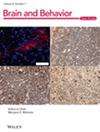Exploring the Causal Association Between 91 Circulating Inflammatory Proteins and Neurodegenerative Diseases: A Bidirectional Two-Sample Mendelian Randomization and Bioinformatics Analysis
Abstract
Background
Circulating inflammatory proteins play a significant role in the pathogenesis of neurodegenerative diseases (NDDs). However, the precise causal relationship and the underlying mechanisms of their interaction remain elusive.
Methods
Genome-wide association study (GWAS) data for 91 circulating inflammatory proteins were obtained from the GWAS Catalog. Additionally, GWAS data for Parkinson's disease (PD), Alzheimer's disease (AD), amyotrophic lateral sclerosis (ALS), multiple sclerosis (MS), and ischemic stroke (IS) were acquired from the IEU Open GWAS Project. Four Mendelian randomization (MR) methods were employed to analyze causal effects, accompanied by sensitivity and pleiotropy analyses. Expression quantitative trait loci (eQTL) analyses for CD40 and MS-associated SNPs were performed. Transcriptomic data from the peripheral blood of MS patients were used to identify differentially expressed genes (DEGs) in relapsing-remitting MS (RRMS). RRMS patients were divided into two subgroups (C1 and C2) based on CD40 expression levels for comparative analysis. A single gene set enrichment analysis (GSEA) was conducted to investigate potential molecular mechanisms through which CD40 influences MS.
Results
MR analyses indicated that CD40 ligand receptor (CD40) is associated with a reduced risk of MS (OR, 0.78; 95% CI, 0.72–0.84; PFDR = 8.75E-07). No statistically significant bidirectional causal relationships were found between other inflammatory proteins and PD, AD, ALS, or IS, and the findings were robust. Functional enrichment analysis revealed that these eQTLs primarily relate to transcriptional regulation, herpes simplex virus 1 (HSV-1) infection, and bile and fatty acid metabolism. In MS peripheral blood microarray data, CD40 is significantly downregulated in RRMS. Intergroup comparisons revealed elevated levels of resting memory CD4+ T cells, activated NK cells, and neutrophils in C1, alongside increased autophagy, apoptosis, multiple immune responses, and upregulation of transforming growth factor-β (TGF-β) signaling pathways. Conversely, C2 exhibited higher levels of Tregs, resting NK cells, and activated dendritic cells, as well as upregulation in processes such as cholesterol homeostasis, glucose metabolism, and CD4/CD8 downregulation. Single-GSEA results suggest that CD40 promotes nucleotide metabolism, mitochondrial calcium ion transport, unfolded protein response (UPR), and adaptive immune regulation, while inhibiting androgen response and TGF-β signaling pathways, thereby influencing the progression of RRMS.
Conclusion
CD40 may exert neuroprotective effects in MS patients via diverse cellular and molecular pathways, potentially representing a novel target for MS intervention.


 求助内容:
求助内容: 应助结果提醒方式:
应助结果提醒方式:


